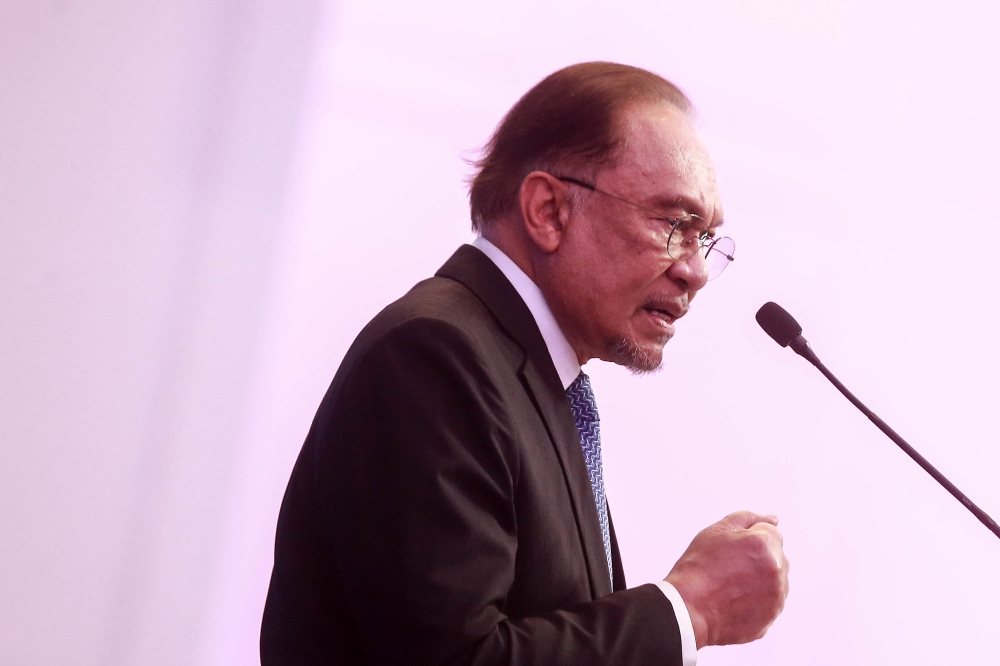AUGUST 7 — In the realm of international recognition for peace and justice, the Nobel Peace Prize stands as the world’s most prestigious accolade.
While the prize is often awarded for mediating ceasefires or ending wars, it is equally important to remember that peace is a process, not merely a momentary cessation of violence.
It is in this broader, global civilisational sense that we offer our endorsement of Prime Minister Anwar Ibrahim’s nomination — not solely for his timely role in the Thailand–Cambodia ceasefire, but for something far more enduring: his lifelong contributions to the culture of dialogue.
His role in the ceasefire, we believe, is not only born out of his sense of responsibility as ASEAN chairman and his “love thy neighbour” philosophy but more importantly as a clear expression of his lifelong commitment to the pursuit of peace through dialogue.
Indeed, even well before the recent escalation between Phnom Penh and Bangkok, there were sustained discussions among scholars, thinkers and civil society leaders about nominating Anwar Ibrahim for the Nobel Peace Prize.
Our reasons were rooted not in the tactical diplomacy of a single event, but in the strategic and ethical ethos that Anwar has exemplified over decades: the empowerment of dialogical culture across civilisations, religions and political fault lines.
Anwar Ibrahim’s public life has consistently been defined by his belief in the power of words over weapons, and in the transformative potential of mutual understanding over mutual suspicion.
From his early involvement with Islamic civil society movements in the 1970s, to his intellectual engagement with global thinkers like Ismail Al-Faruqi, John Esposito, even the works of Izutsu Toshiko, Anwar has consistently called for the harmonisation of faith, reason and governance through dialogue.
He has embodied what we may call a “civilisational mediator” — a leader who recognises that conflicts, even geopolitical ones, are rooted in deeper epistemological and cultural misunderstandings.
The current ceasefire between Thailand and Cambodia, brokered in part through Malaysia’s quiet but deliberate diplomacy under Anwar’s chairmanship of ASEAN, is a case in point.
While the dynamics of great power politics may shape regional developments in complex ways, this should not detract from the dialogical infrastructure that made the ceasefire possible.
Moreover, it is continuing dialogue — the spirit of which flows in his blood veins — that will help sustain peace between the two nations and in the region beyond Anwar’s chairmanship of ASEAN and even premiership of Malaysia.
The success of any negotiation is built on years of trust, cultural literacy and principled leadership. This is precisely where Anwar’s lifetime of work in fostering interfaith dialogue and regional understanding becomes invaluable.

Prime Minister Datuk Seri Anwar Ibrahim’s civilisational positioning of Malaysia as a bridge nationhas become a model of peaceful coexistence in an increasingly fractured global order. — Picture by Sayuti Zainudin
His leadership in convening the ASEAN–GCC Summit, coupled with China’s active participation in the ASEAN–GCC–China Summit, represents a defining moment of dialogical diplomacy.
These summits were not merely symbolic. They brought together diverse civilisational blocs — Southeast Asia, the Gulf and East Asia — into a single framework of cooperation grounded in mutual respect, shared values and an agenda for peace and development.
That such a summit could take place under Malaysia’s chairmanship, with Anwar at the helm, reflects his profound ability to orchestrate dialogue at a civilisational scale.
It is worth recalling that Nobel Peace Laureates are not chosen merely for stopping a war. Many have been honoured for laying the groundwork for future peace — by building institutions, creating intellectual bridges or planting seeds of understanding in hostile terrains.
In this regard, Anwar’s lifelong commitment to the dialogical method — to resolving difference through deliberation rather than domination — resonates with the highest ideals of Alfred Nobel’s vision.
Anwar Ibrahim’s political trials have also forged in him a moral authority that cannot be manufactured. His years in prison did not diminish his belief in reconciliation.
Upon returning to power, he chose dialogue over vengeance, inclusion over exclusion. This is not just a political choice — it is a philosophical and a moral one, a commitment to the idea that democracy, like religion, must be grounded in a culture of ethical conversation and mutual respect.
Moreover, his civilisational positioning of Malaysia as a bridge nation — between East and West, Islam and the modern world, between liberalism and tradition — has become a model of peaceful coexistence in an increasingly fractured global order.
Whether through the ASEAN–GCC–China platform, Track II diplomacy, or his writings and speeches on the spiritual and ethical foundations of governance, Anwar’s hand has always been visible, guiding the conversation toward common ground.
Some may argue that the full impact of his dialogical contributions has yet to be measured on the global stage.
We submit, however, that the Nobel Peace Prize has always been as much about moral signal as political signal. It is about honouring those who, through patience and principle, have shaped a new architecture of peace, even when global attention is elsewhere.
In that spirit, we submit that Anwar Ibrahim’s Nobel-worthiness lies not in a single ceasefire — though that alone is commendable — but in a life devoted to the ethics of dialogue.
A prize bestowed upon him would be a recognition not only of his past, but a reinforcement of a model the world urgently needs: leadership rooted in humility, guided by wisdom, and committed to dialogue in the service of humanity.
Let us not wait until history catches up. Let us recognise now what many already know: that Anwar Ibrahim represents the dialogical conscience of our time.
* Emeritus Prof Dr Datuk Osman Bakar is the Al-Ghazali Chair of Epistemology and Civilisational Studies Rector at International Islamic University Malaysia (IIUM). Prof Dr Phar Kim Beng is professor of Asean Studies, IIUM and director, Institute of Internationalization and Asean Studies (IINTAS).
** This is the personal opinion of the writer or publication and does not necessarily represent the views of Malay Mail.






